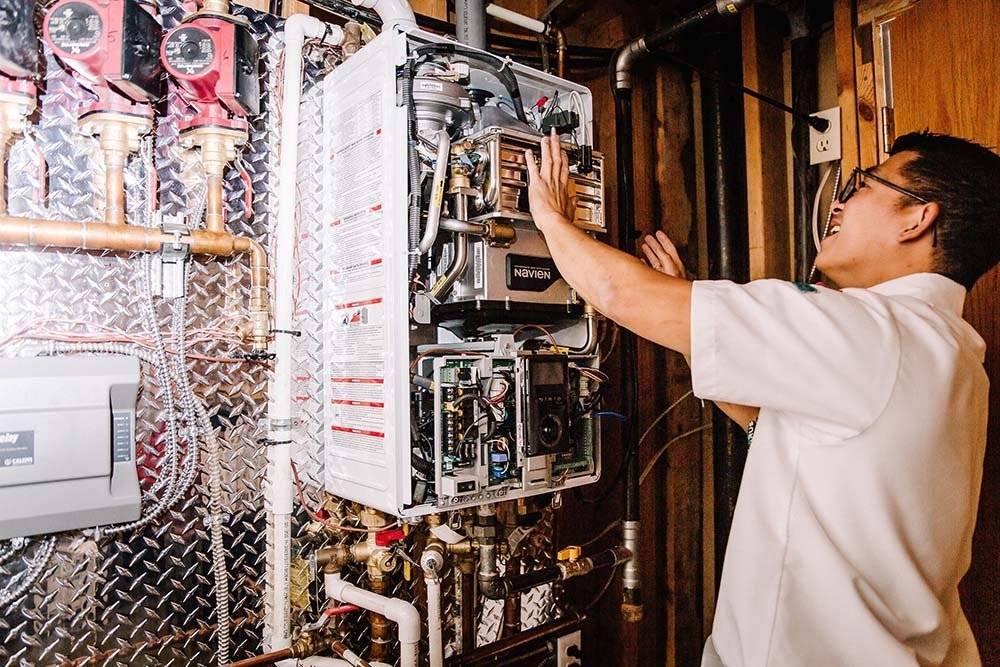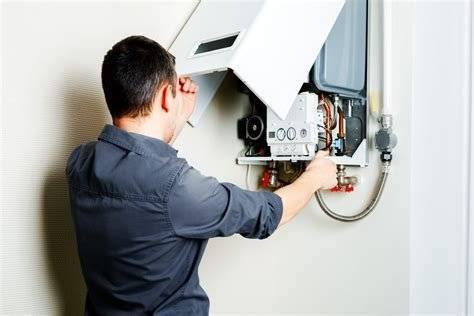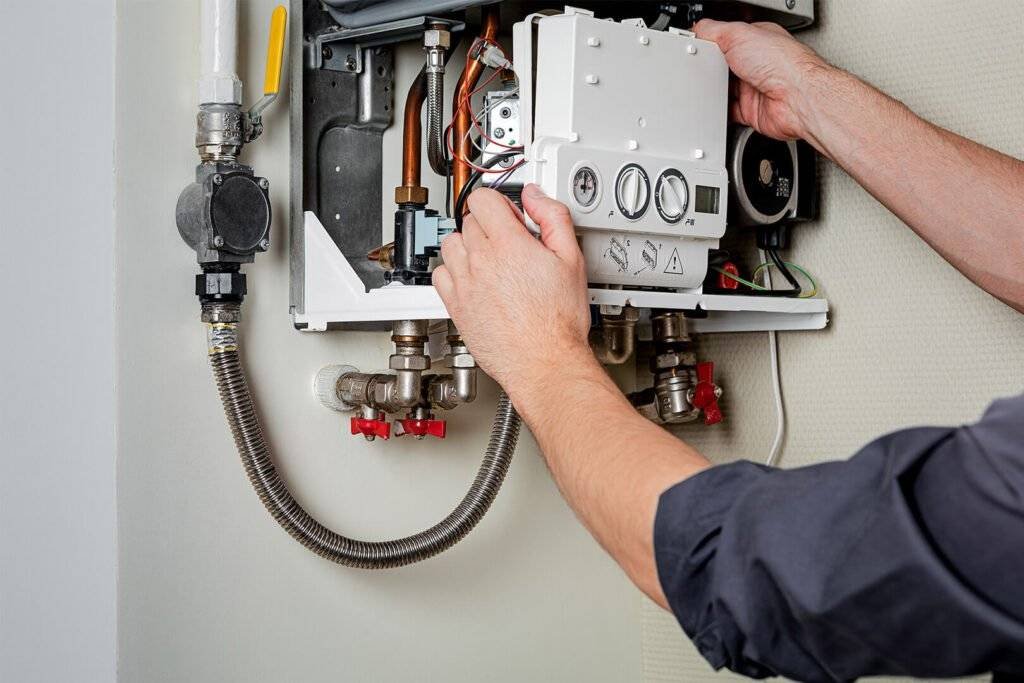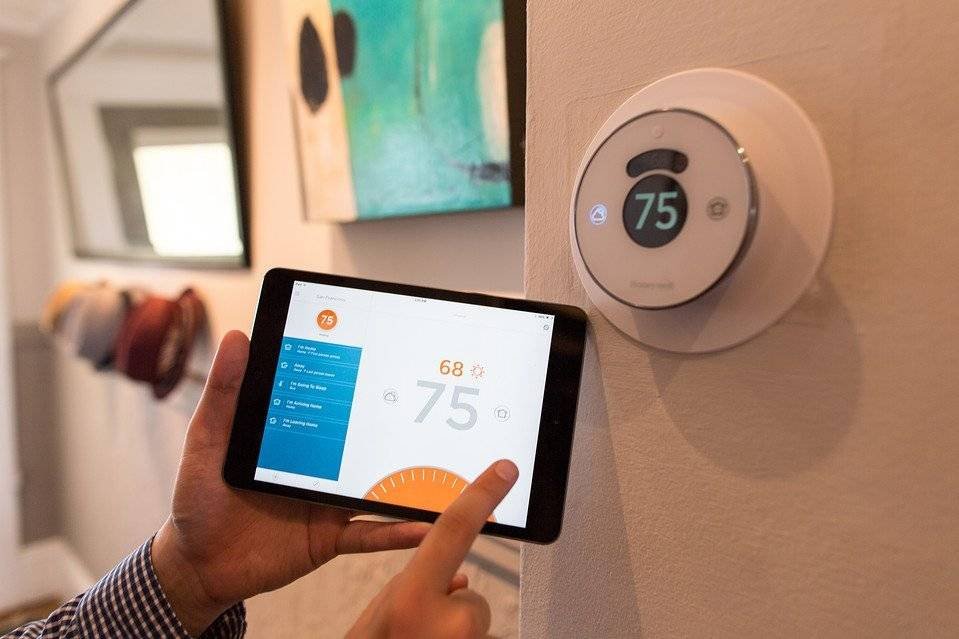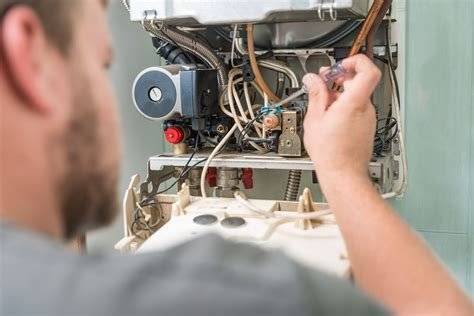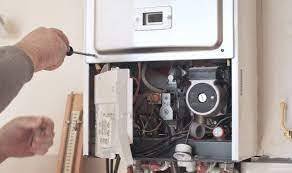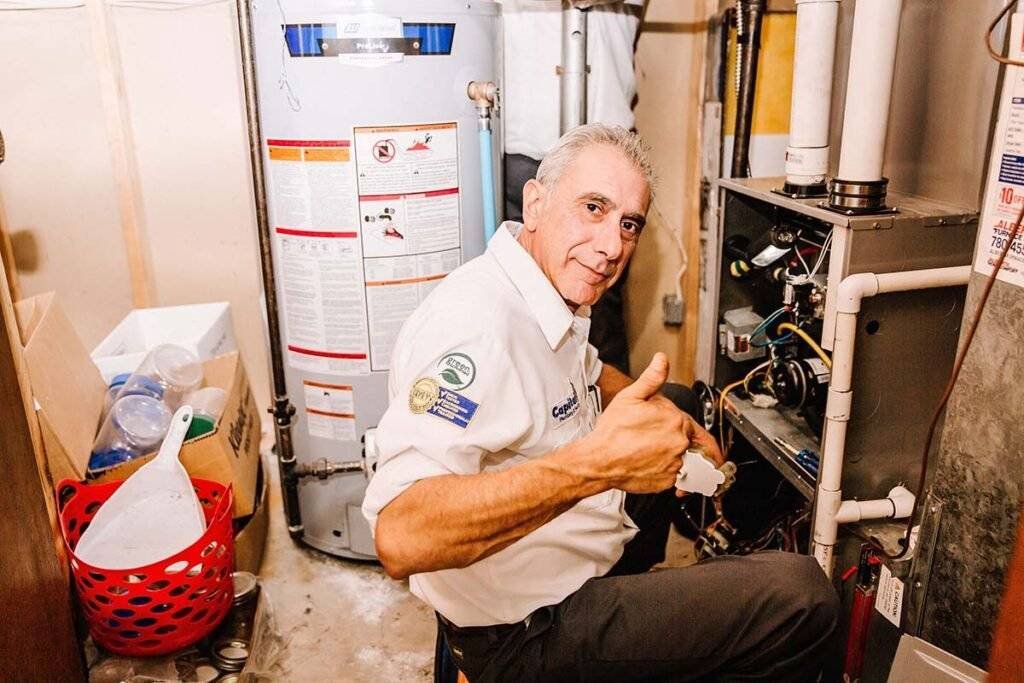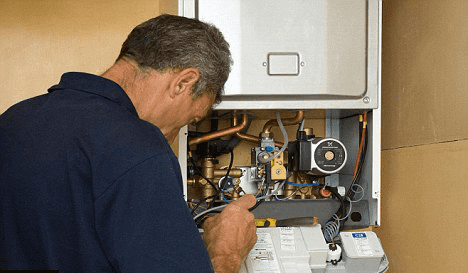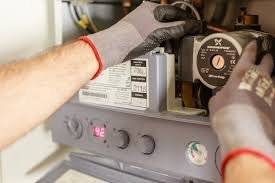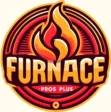Furnace Installation Carbondale - Your Dependable Heating Professionals
Furnace Pros Plus is your reputable partner for all your heating requires. With years of experience, we specialize in providing first-class heating options to keep your home warm and comfy. Our group of competent specialists devote themselves to providing expert furnace installation, maintenance, and repair work services. We understand the importance of an appropriately functioning heater, especially during the chillier months. We prioritize effectiveness, affordability, and client fulfillment in every task (big or small). Whether you require a brand-new furnace, a routine check-up, or emergency repairs, depend on Furnace Pros Plus for reliable and effective heating services that guarantee peace of mind and comfort.
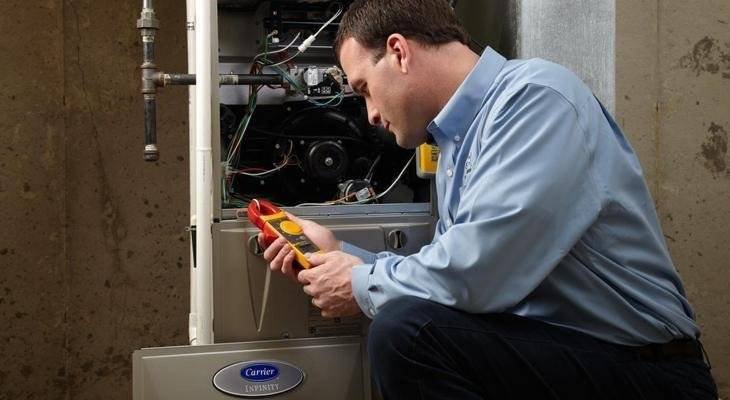
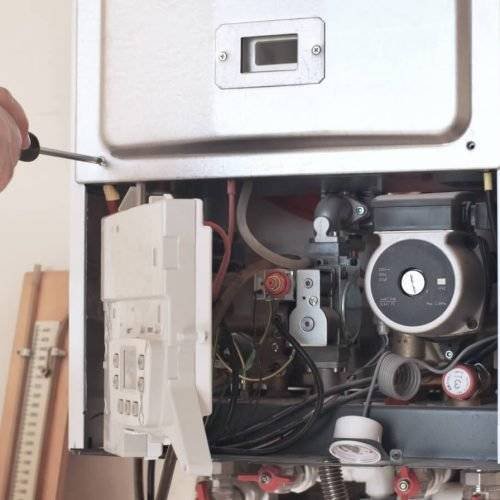
Who Are We?
Domestic Heating Installations & Repairs
Furnace Pros Plus stands out as the premier furnace installation and repair work contractor in Carbondale, Alberta, thanks to its unequaled dedication to quality, customer service, and competence. With years of experience in the heating and cooling market, Furnace Pros Plus has built a reputation for providing reputable and effective services customized to the unique environment and requirements of Carbondale locals.
The company’s commitment to excellence begins with its group of certified experts. Each furnace specialist is not only highly skilled and educated about the current furnace innovations but also dedicated to continuous training and development. This guarantees that every installation or repair work is performed with the utmost accuracy and updated techniques, ensuring superior performance and durability of your furnace.
Furnace Pros Plus understands the importance of a well-functioning furnace, especially during the harsh Carbondale winter seasons. That’s why they provide a fast response to guarantee that any furnace emergency is handled immediately and effectively, decreasing inconvenience and possible risks. Their 24/7 schedule is a testament to their dedication to client fulfillment and safety.
Furthermore, Furnace Pros Plus makes use of only the highest quality products and products in all their installations and repairs. By partnering with leading makers, they guarantee that every component of your furnace system is durable and effective, providing ideal heating and reducing energy costs. This commitment to quality, extends the life of the furnace, providing more value for the financial investment.
In addition to their technical competence, Furnace Pros Plus excels in customer service. They prioritize clear communication, providing in-depth assessments and transparent rates without concealed costs. Their individualized technique suggests that every service is customized to the particular requirements and spending plan of their customers, ensuring that you feel valued and satisfied with every interaction.
For these factors and more, Furnace Pros Plus is the leading choice for anyone needing furnace installation and repair work services in Carbondale, demonstrating an unequalled blend of quality, competence, and customer-focused service.
How can we help you?
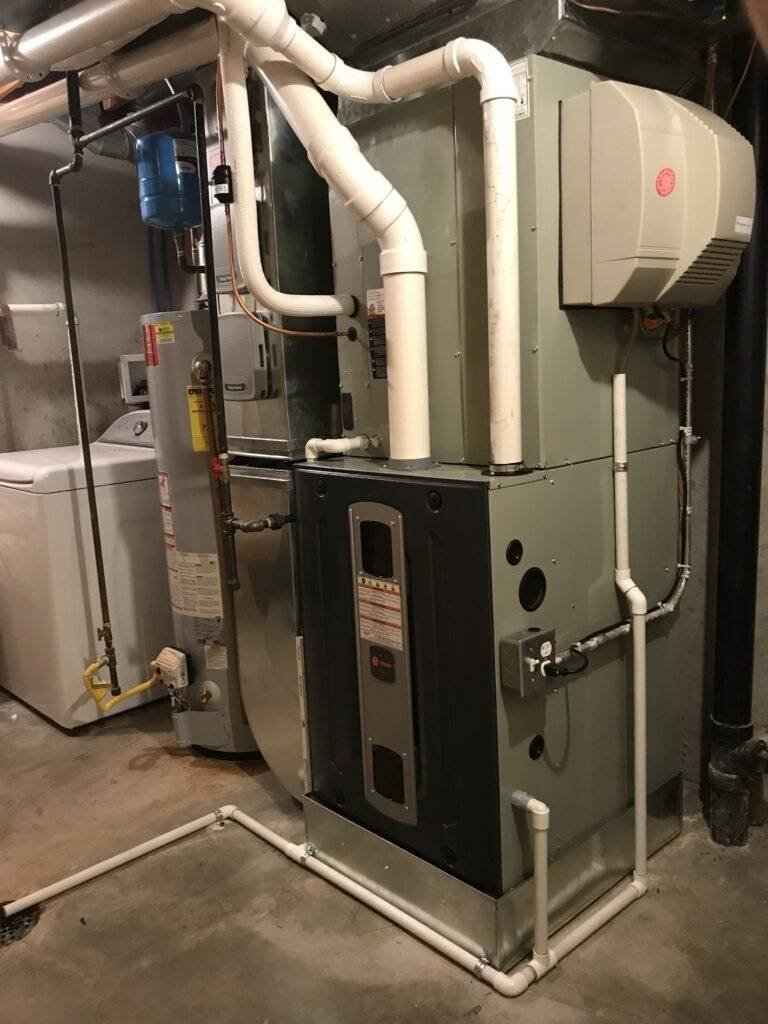
Understanding the Expense of Installing a Modern Furnace
Introduction
An operating furnace is necessary when it pertains to maintaining a comfy and warm home during the chillier months. Nevertheless, there comes a time when installing a brand-new furnace is inescapable.
Understanding the costs involved in this process is vital for house owners to strategy and spending plan accordingly. This thorough guide explores the numerous factors influencing the cost of installing a brand-new furnace.
Aspects Influencing Heater Installation Expenses
Kind of Furnace:
- Gas Heaters: Popular for their effectiveness, they typically cost more in advance however provide lower operating expense.
- Electric Furnaces: They are less costly than gas heaters. Nevertheless, electrical models tend to have higher functional costs due to electricity rates.
- Oil Furnaces: These are less typical and can be more expensive due to the cost of oil.
Heater Size and Capability
- Square Footage: The size of your home directly affects the capacity needed for the furnace.
- BTU Ranking: Greater BTU scores relate to more effective heaters, which can increase the cost.
Efficiency Rankings
Annual Fuel Utilization Efficiency (AFUE):
Greater AFUE scores imply better effectiveness however also featured a greater cost.
Brand name and Quality
Top-tier brand names frequently command higher rates due to their credibility for quality and durability.
Installation Complexity
- Existing System: Upgrading from an old system might need additional work and cost.
- Ductwork: The condition and layout of existing ductwork can impact installation intricacy.
- Ease of access: Tough access to the installation site can increase labour costs.
Labour Expenses
Labour costs differ by area. In addition, the intricacy of the installation can influence labour costs.
Additional Expenses to Consider
- Permits: Some regions need permits for furnace installation.
- Inspections: City laws might need post-installation evaluations for safety compliance.
- Thermostats: Upgrading to a smart thermostat can incur additional costs.
Average Expense of Heater Replacement
While rates can differ extensively based upon the factors pointed out above, here are some typical cost ranges for furnace installation:
- Gas Furnaces: $2,000 to $5,000.
- Electric Furnaces: $1,000 to $2,500.
- Oil Furnaces: $2,500 to $6,000.
These are rough estimates and can differ based upon particular home requirements.
Cost-Saving Tips.
Research and Compare.
Obtain numerous quotes from different contractors to guarantee competitive rates.
Seek Rebates and Incentives.
Look for energy effectiveness rebates offered by utility companies or federal government programs.
Consider Long-Term Cost Savings.
Purchasing a more effective furnace can decrease energy expenses over time.
Conclusion
Setting up a brand-new furnace is a considerable financial investment, and understanding the costs included is necessary for any homeowner. By considering the type of furnace, installation intricacy, labour costs, and additional expenses, house owners can better prepare for this necessary upgrade. Remember to seek numerous quotes, explore readily available rebates, and think about long-lasting energy savings when deciding.
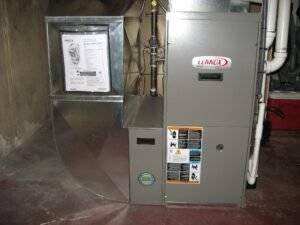
The Right Dimension Heater for Your Home: A Comprehensive Guide
Introduction
Picking the ideal size furnace for your home is vital for ensuring effective heating and comfort during the chillier months. A heater that’s too small won’t keep your home warm, while one that’s too big can cause unneeded energy intake and unequal heating. This guide will help you determine the perfect furnace size for your home.
Understanding Heater Sizing: BTU and Efficiency
We determine the size of a heating system in British Thermal Systems (BTU). One BTU is the energy needed to raise the temperature of one pound of water by one degree Fahrenheit. When selecting a heating system, two key factors play a role: the BTU ranking, suggesting the furnace’s heating capacity, and its effectiveness ranking, measured in Annual Fuel Utilization Efficiency (AFUE).
Determining Your Home’s Heating Requirements
You need to determine your home’s heating requires to determine the correct furnace size. The estimation thinks about factors like square footage, environment zone, insulation quality, window type, and home layout. Usually, you require approximately 30-60 BTUs per square foot. Nevertheless, this varies based upon your home’s particular characteristics.
Climate Zone and Its Effect On Heater Size
Your geographical location considerably influences the furnace size needed. Homes in chillier areas, such as Carbondale, need more BTUs per square foot than those in milder climates. Seek advice from a heating professional for particular recommendations.
The Role of Home Insulation in Heater Sizing
Excellent insulation lowers the amount of heat loss, implying you can go with a smaller sized furnace. Examine your home’s insulation in the walls, attic, and windows. Upgrading insulation can be a cost-effective method to minimize heating requirements.
Factors To Consider for Different Types of Heaters
There are numerous kinds of heaters, like gas, electrical, and oil. Each type has unique sizing factors to consider. Gas heaters are common and effective, electrical heaters are more simple and much safer however frequently more expensive to run, and contractors install oil heaters where gas isn’t readily available.
Significance of Expert HVAC Evaluation
A professional heating and cooling evaluation is indispensable. Technicians think about all variables, including ductwork and home layout, to suggest the ideal furnace size. They can carry out a Manual J estimation, the market requirement for figuring out heating and cooling loads.
Energy Efficiency and Cost-Effectiveness
Picking a heating system with a high AFUE ranking is vital for energy effectiveness and cost savings. Modern heaters have AFUE scores between 80% and 98%, suggesting the portion of fuel converted into heating. While high-efficiency heaters are more expensive in advance, they can cause considerable savings in the long run.
Attending To Common Misconceptions About Heater Sizing
A typical misconception is that a larger furnace is constantly better. Nevertheless, an oversized furnace can cause brief cycling, where the furnace frequently turns on and off, reducing effectiveness and lifespan. On the other hand, a small furnace has a hard time to warm your home properly.
Long-Term Advantages of the Right-Sized Furnace
Selecting the right-sized furnace has long-lasting advantages, including consistent comfort, lower energy expenses, minimized carbon footprint, and less maintenance issues. It’s a balance between in advance costs and long-lasting savings.
Summary: Making an Educated Choice
Picking the ideal size furnace is a decision that affects your home’s comfort and energy effectiveness for several years to come. By understanding the fundamentals of furnace sizing and seeking professional guidance, you can make an informed decision that guarantees ideal heating for your home.
Remember, the secret to an efficient and comfy home depend on selecting the ideal furnace and regular maintenance and considering other factors like insulation and environment. With this thorough guide, you are fully equipped to select the best furnace for your home, providing warmth and comfort for lots of winter seasons.
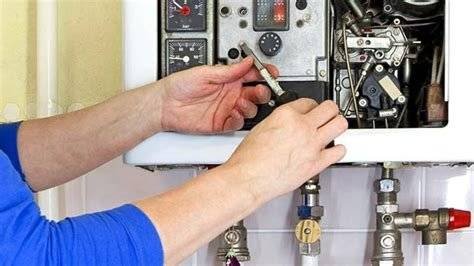
Replace vs Repair Heater: A All-inclusive Guide
Introduction
Choosing whether to replace or repair your furnace is a considerable decision for any homeowner. The choice affects your instant comfort and safety and has long-lasting monetary ramifications. This thorough guide will explore numerous aspects to think about, helping you make a notified decision.
Understanding Your Furnace
Lifespan and Types
Furnaces typically have a life expectancy of 15-20 years. The two primary types are gas and electrical, each with different maintenance and functional costs.
Indications of Problems
Common signs that your furnace might require attention include unusual sounds, inconsistent heating, and increased energy expenses.
When to Consider Fixing Your Heater
Repair is frequently the best choice for small issues or heaters that are reasonably brand-new and still under guarantee.
Cost-Effectiveness
Fixing can be more affordable for small issues. Nevertheless, frequent repairs might show a deeper issue.
Ecological Effect
Repairs frequently have a lower ecological impact than replacing the whole system.
When Replacement is the Very Best Choice
You should think about replacement if your furnace is near completion of its lifespan, repairs are ending up being increasingly expensive, or if it could be more energy effective.
Long-lasting Expense Cost Savings
While the preliminary cost is higher, a brand-new furnace can be more energy-efficient, conserving you cash on energy expenses.
Technological Advancements
Newer models feature advanced innovation, such as smart thermostats, which provide better temperature control and effectiveness.
Weighing Your Alternatives
Expense Analysis
Compare the cost of repairs over time versus the one-time expenditure of a brand-new furnace.
Energy Efficiency
Examine how your present furnace’s effectiveness is impacting your energy expenses.
Home Value
Consider how a brand-new furnace might increase the value of your home, especially if you plan to offer in the future.
Professional Suggestions
Looking For Professional Viewpoint
Seek advice from HVAC experts to examine the state of your present furnace and get estimates for repair work and replacement.
Significance of Routine Maintenance
Routine maintenance can extend the life of your furnace, whether you decide to repair or replace it.
Summary
In conclusion, deciding to repair or replace your furnace depends on numerous factors, including age, condition, cost, and energy effectiveness. By considering these factors and seeking professional recommendations, you can decide that guarantees comfort, safety, and monetary vigilance for your home.
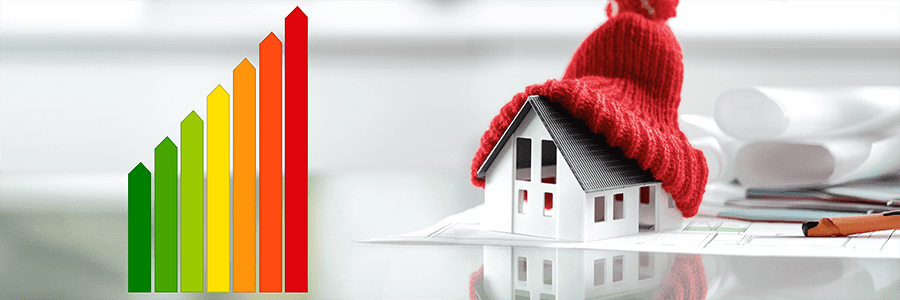
What Season is the Most Affordable to Replace The Heater?
Will a Modern Energy-Efficient Heater Lower Your Home Insurance Coverage?
Introduction
Home maintenance can be a considerable financial investment, especially when it involves vital systems like heating. Among the most substantial costs house owners face is replacing their furnace. Nevertheless, timing this replacement can cause considerable savings. This short article explores the best time of year to replace your furnace, considering cost-effectiveness and practicality.
Understanding Heater Replacements
The Need for Replacement
Before delving into timing, it’s necessary to understand why and when you should replace your furnace. Common indicators include frequent repairs, heating inadequacy, and the system’s age (typically beyond 15-20 years). Changing an outdated or malfunctioning furnace improves heating effectiveness and guarantees safety and comfort during chillier months.
Aspects Influencing Heater Prices
Several factors impact furnace rates, including the type of furnace, brand name, capacity, and the intricacy of installation. Seasonal demand is another considerable element, frequently overlooked, yet it plays a vital function in figuring out the cost.
Finest Time for Replacement: Off-Season
Why Pick Off-Season?
The off-season, primarily spring and early fall, is generally the most inexpensive to replace a heating system. The demand for heating unit is lower during these periods than during the peak winter months. Lower demand frequently causes more competitive rates from makers and installers.
Advantages of Off-Season Replacement
- Lower Expenses: Minimized demand can cause discount rates and more consumer negotiating power.
- Availability of Technicians: heating and cooling specialists are less hectic during these times, ensuring more flexible scheduling and quicker installation.
- Sufficient Time for Research: The off-season offers house owners sufficient time to research different furnace models and alternatives without the pressure of instant requirement.
Preparation Ahead
Using the off-season requires planning. Prepare for the requirement for replacement and schedule it when the demand is low. This foresight conserves cash and avoids the inconvenience of a heating system breaking down in the middle of winter season.
Winter season: The Peak Season
Challenges of Winter Season Replacement
- Greater Prices: The demand for furnace installation and repair work peaks during winter season, resulting in higher rates.
- Hectic Schedules: Finding a service technician might be more tough, and you might have to wait longer for a consultation.
- Emergency Replacements: If your furnace breaks down in winter season, you might have to go with an instant replacement, which leaves little space for cost contrast or settlement.
Other Factors to consider
Energy Efficiency and Rebates
Purchasing energy-efficient models might be more expensive in advance however can cause long-lasting savings. Also, look out for rebates and tax credits offered for energy-efficient home improvements.
Significance of Routine Maintenance
Routine maintenance can prolong the life of your furnace, delaying the requirement for replacement. It’s a necessary element of home care that you should take notice of.
Summary
Timing your furnace replacement can cause considerable savings. The off-season, especially spring and early fall, is typically the most affordable duration for this financial investment. Preparation, considering energy effectiveness, and maintaining your present furnace can enhance expenses and guarantee a warm, comfy home.
Introduction
Homeowners frequently consider whether upgrading their home appliances and systems can cause savings on their home insurance premiums. One typical concern is whether installing a brand-new furnace lowers home insurance costs. This short article explores how a brand-new furnace installation might affect your home insurance, using insights into insurance plan, risk management, and possible savings.
Understanding Home Insurance Coverage Premiums
Before diving into the specifics of heaters and insurance, it’s vital to understand what factors influence home insurance premiums. Insurance companies examine numerous factors, including:
- Residential Or Commercial Property Age and Condition: Insurance Agents see more recent homes with updated systems as lower dangers.
- Area: Geographical location and local environment can considerably impact insurance rates.
- Safety Features: The existence of alarms, smoke alarm, and other safety gadgets can decrease premiums.
The Effect of a New Heater on Home Insurance Coverage
Setting up a brand-new furnace in your house can have several ramifications for your home insurance:
- Minimized Threat of Fire and Gas Leakages: Modern heaters with advanced safety features lessen dangers like fire or gas leaks. This risk decrease can be favourable in the eyes of insurance companies.
- Improved Energy Efficiency: Newer heaters are frequently more energy-efficient, resulting in lower utility costs and a reduced ecological footprint, indirectly affecting insurance factors to consider.
- Boosted Home Value: Upgrading to a brand-new furnace can increase your home’s market value, which might impact the protection you require.
Possible Insurance Coverage Discount Rates
Some insurance companies provide discount rates for home improvements that minimize risk. These might include:
- Protective Device Discounts: You might receive a discount if your brand-new furnace contains advanced safety features.
- Green Home Discounts: Some insurance providers offer unique discount rates for installing energy-efficient appliances.
Documents and Appraisal
To leverage a brand-new furnace installation for insurance advantages, think about the following:
- Professional Installation: Ensure a licensed professional installs your furnace, which can be a requirement for insurance advantages.
- Keep Records: Keep all invoices and documents for the furnace purchase and installation.
- Inform Your Insurance Company: Inform your insurer about the upgrade. They might need an inspection or additional documents.
Factors to consider Before Upgrading
While a brand-new furnace can provide advantages, think about the following:
- Expense vs. Advantage Analysis: Evaluate if the long-lasting savings on insurance and energy expenses justify the preliminary cost of a brand-new furnace.
- Insurance Plan Review: Speak with your insurance agent to understand how a brand-new furnace might particularly affect your policy.
Summary
Upgrading to a brand-new furnace can decrease your home insurance premiums by reducing risk and improving your home’s safety and effectiveness. Nevertheless, the impact varies based upon specific insurance plan and the particular features of the furnace. It’s advisable to speak with your insurance supplier to understand the full advantages and ramifications of a brand-new furnace installation.
FAQs
Q: Just how much can I save on my home insurance by installing a brand-new furnace?
A: Cost savings differ based upon the insurance supplier and the particular features of the brand-new furnace. Seek advice from your insurance agent for in-depth information.
Q: Are there any particular kinds of heaters that are more favourable for insurance discount rates?
A: Furnaces with advanced safety features, high energy effectiveness scores, and those that meet particular ecological requirements are frequently more favourable.
How to Prepare for a Furnace Installation
Setting up a brand-new furnace in your house is a considerable financial investment and a necessary upgrade to your home. It enhances the comfort of your home and improves energy effectiveness. Proper installation preparation is vital to guarantee the installation process is smooth and hassle-free. This short article will direct you through the necessary actions to prepare for a heating system installation.
Understanding Your Heating Requirements
Examining Your Area: The primary step is to examine the size of your area and understand the heating requirements. A too-large or too-small furnace for your home can cause inadequacy and higher energy costs. Consulting with a heating professional to determine the ideal furnace size is vital.
Picking the Right Heater: There are numerous heaters, including gas, electrical, and oil. Each has benefits and drawbacks; the choice depends on your location, spending plan, and individual preference. Research and speak with professionals to make a notified decision.
Pre-Installation Preparation
Selecting a Certified Installer: We can not overstate the importance of choosing a certified and experienced installer. Look for experts with good evaluations and correct certification. They will guarantee a correct installation and guide you through the process.
Clearing the Location: Ensure the location where you plan to install the furnace is clear of any clutter. A clean location provides easy access to the installation group and accelerate the process. Get rid of any valuable or vulnerable items from the vicinity to prevent unexpected damage.
Getting ready for Downtime: Depending on the intricacy of the installation, your heater might be down for a couple of hours to a day. Strategy accordingly, especially if the installation is during chillier months.
Throughout Installation
Access to Your Home: Ensure the installers have easy access to your home, which includes ensuring that parking is readily available and a clear path to the furnace location.
Interaction: Stay readily available to answer any concerns the installers might have. Clear communication can help fix any issues quickly and ensure your installation goes as planned.
Post-Installation Checks
Check the Installation: Once the installation is total, examine the work with the installer. Ensure that the installation is total which the location is clean.
Understanding the System: Have the installer discuss the functioning of the brand-new furnace, including how to alter filters and the basic troubleshooting actions.
Guarantee and Documents: Ensure you receive all necessary documents, including guarantee information and operating manuals. Keep these files in a safe place for future reference.
Conclusion
Getting ready for a heating system installation involves understanding your heating requires, selecting the ideal furnace, and choosing a certified installer. By following these actions, you can guarantee a problem-free installation process and enjoy the comfort and effectiveness of your brand-new heater for several years to come. Remember, a little preparation goes a long way in ensuring a smooth and successful furnace installation.
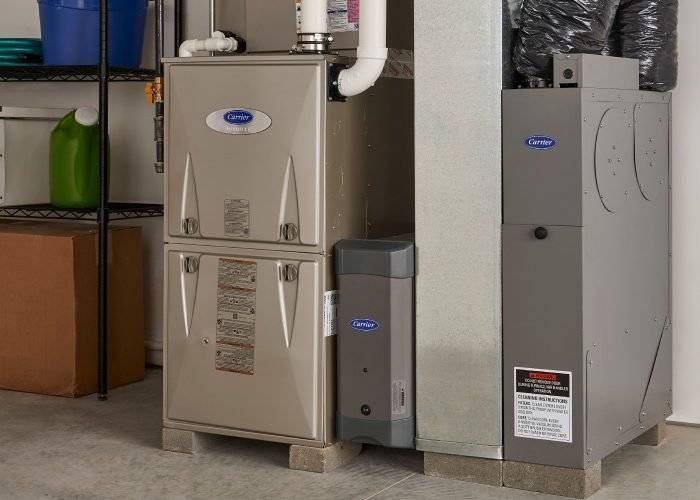
Our Work
